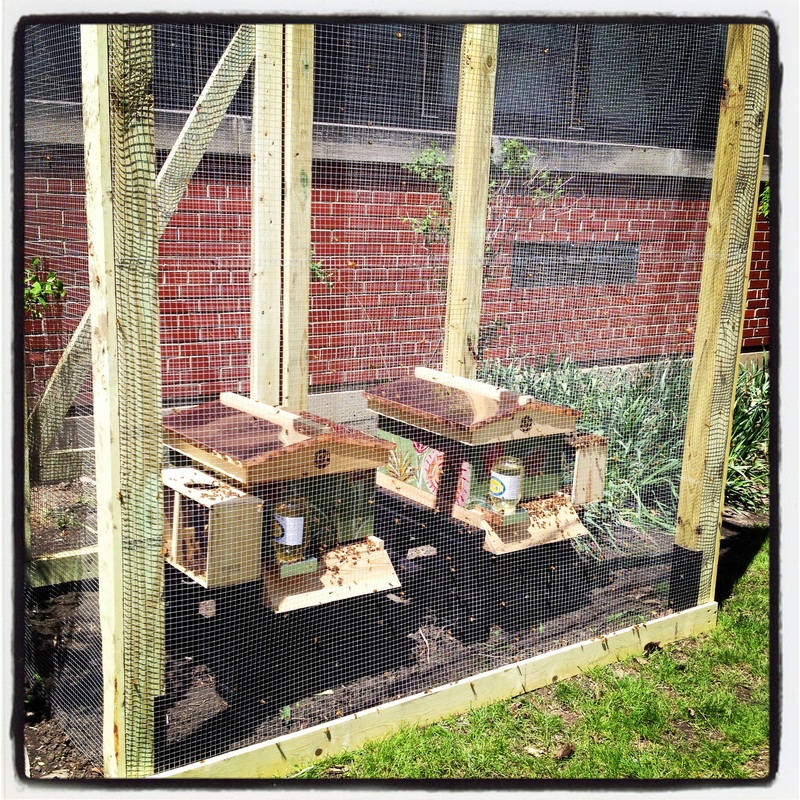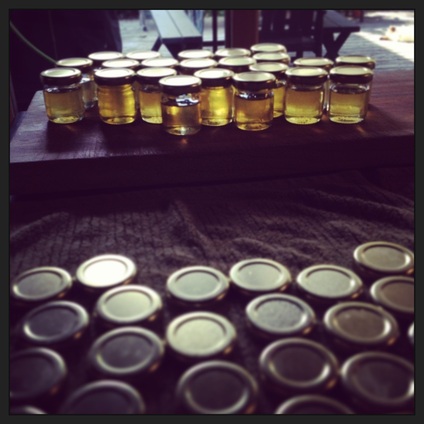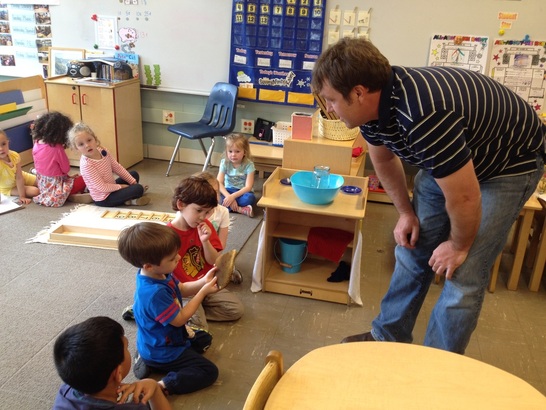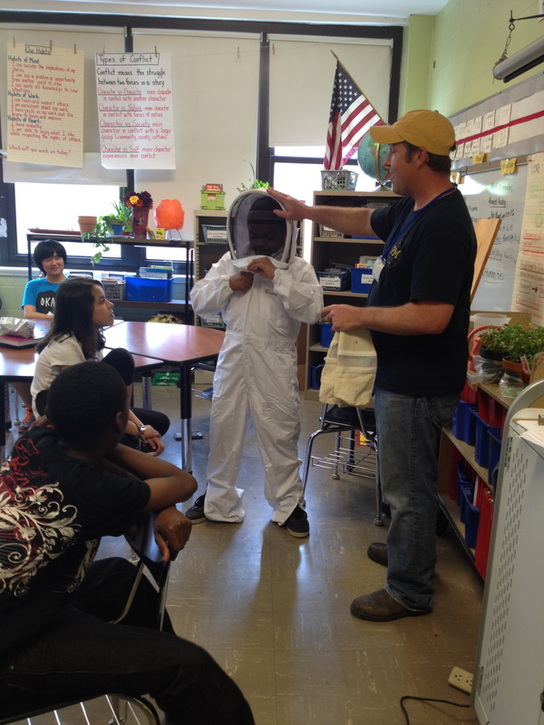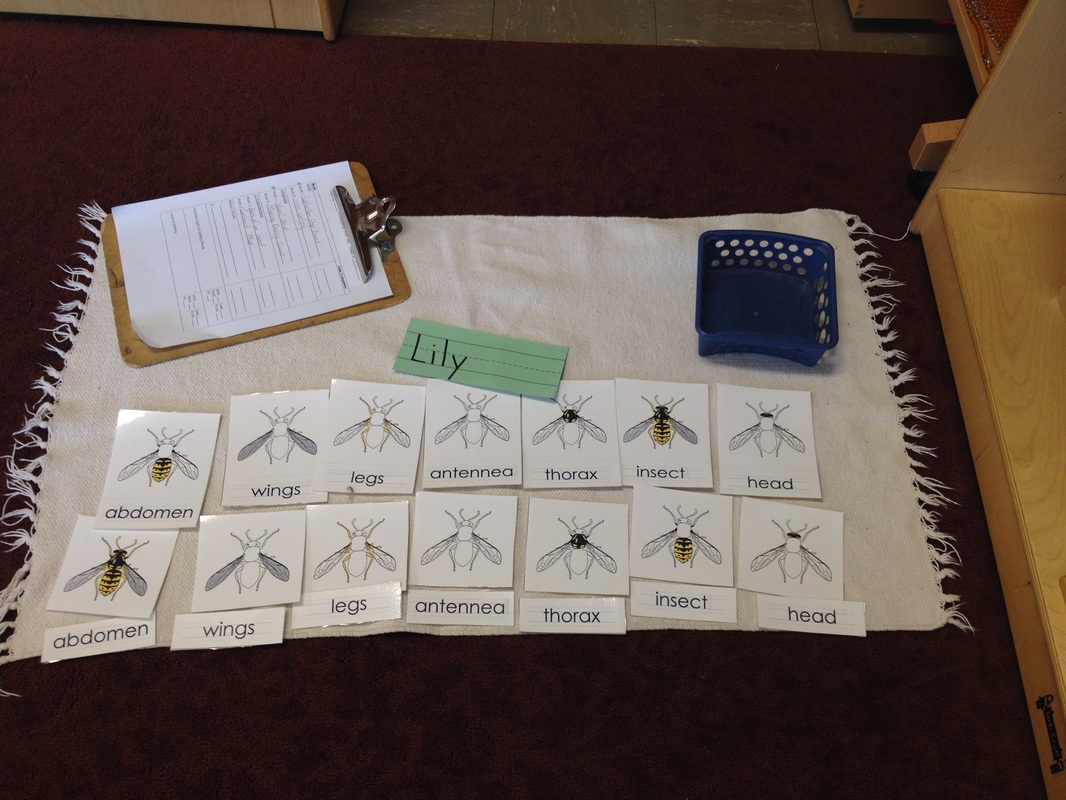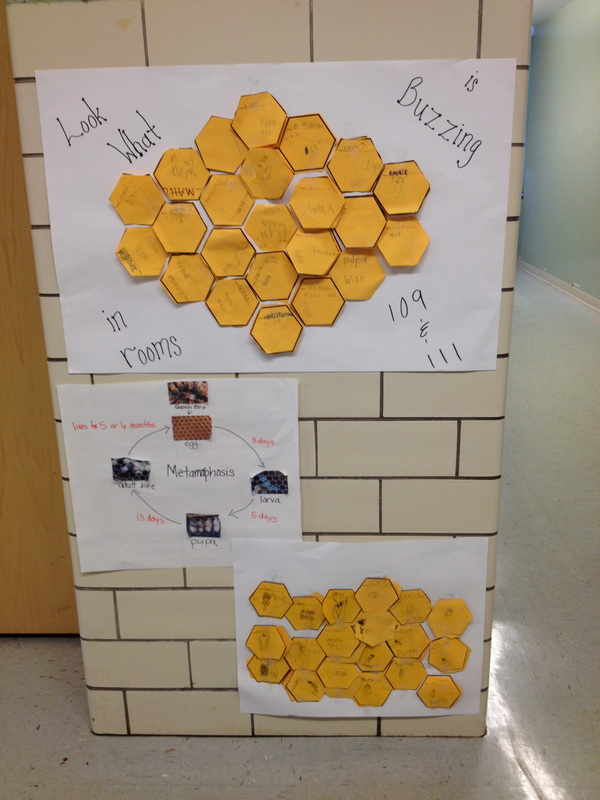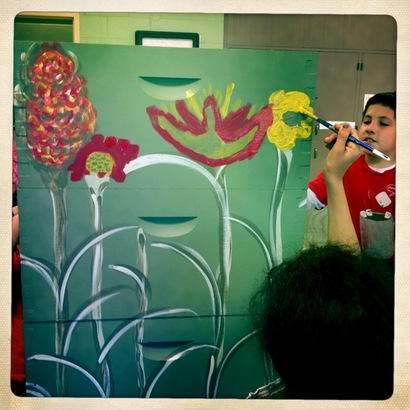THE OSCAR MAYER HONEYBEES
Through a $2000 grant from the Whole Foods Foundation and Food Corps., we were able to add two honeybee hives on our school grounds. The Linebaugh Family, who have 20 beehives on their farm in Indiana, generously donated the bees, bee equipment and their expertise and Chuck Linebaugh has become our official Mayer beekeeper! He has done a tremendous job educating the students about honeybees and their importance in our world and we feel incredibly fortunate to have him on our team.
Why have bees at a school? Isn't that dangerous?
Did you know that 40% or over 1/3 of the world’s food sources depend on pollinators? And our pollinators are in big trouble right now. If we lose our pollinators, every third bite of food you eat everyday will disappear: no more fruit, coffee, chocolate, seeds, nuts and honey to name a few. We knew that we had to start teaching our children the importance of protecting our pollinators and for them to become stewards of the environment.
Honeybees are not aggressive. They are focused and driven insects, foraging for pollen and nectar to create healthy babies and survive the winter. When they sting they die so they don’t like doing it. Honeybees, by nature, are remarkably gentle creatures. Most of the fear associated with them comes from their relatives: yellow jackets & wasps.
And so far in the year and half that we have had honeybees at the entrance of our school, no one has been stung.
